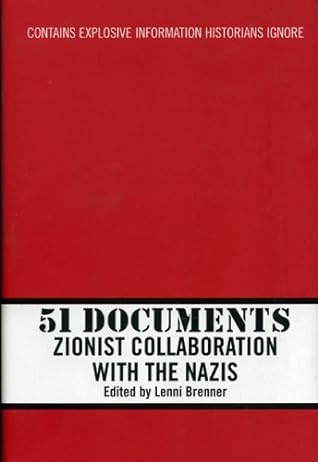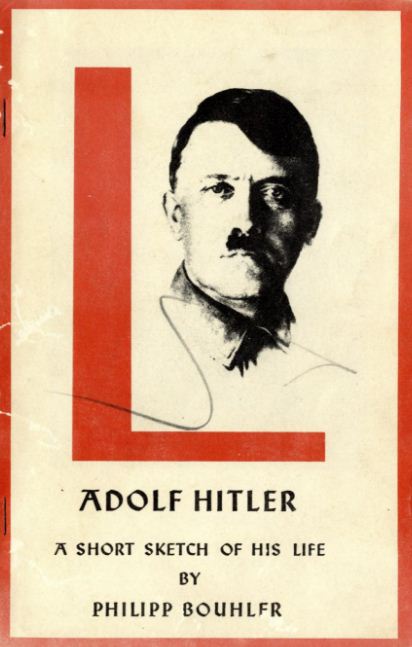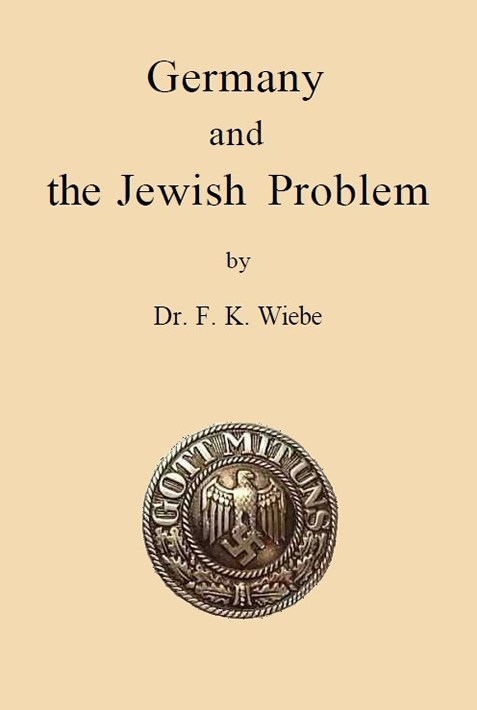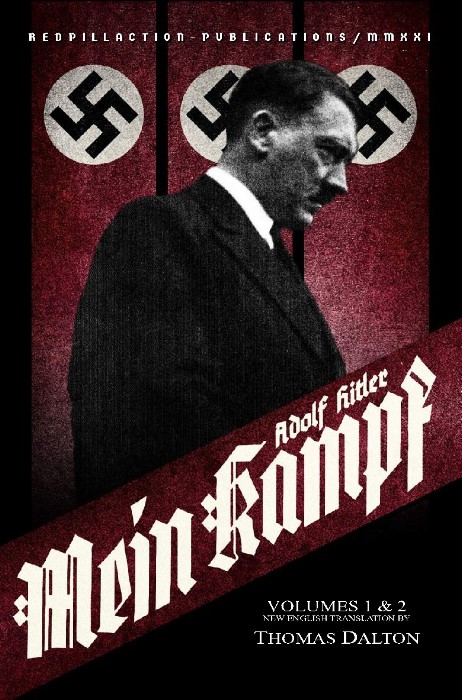PDF Books to Read or Download
PDF Books to Read or Download

51 Documents: Zionist Collaboration with the Nazis
Edited by Lenni Brenner (2002)
Put together by anti-Zionist Lenni Brenner. the book presents 51 documents that Brenner argues show that Zionist leaders collaborated with National Socialist Germany in order to build up a Jewish presence in Palestine. The book continues themes explored in Brenner’s earlier and highly controversial work Zionism in the Age of the Dictators.

Adolf Hitler: A Short Sketch of His Life
by Philipp Bouhler (1938)
Issued by the German Foreign Office in Berlin, 1938, this work was designed to provide the English-speaking world with a brief introduction to the life and political career of Adolf Hitler up to that year. Starting with Hitler’s early life, it moves on to describe his war record and political struggle to become chancellor, then moving on to describe the various internal political measures followed by the Hitler government – from racial matters to economic and social reformation, all undertaken at the specific instruction of the German leader. This view on Hitler and the development of peacetime National Socialist Germany is unique because it was presented from the German point of view, published as it was with the official sanction of the Third Reich government.

by Nesta Webster (1938)
A little known and hard to find pamphlet about Germany under National Socialism, and specifically it’s Chancellor, Adolf Hitler, published a year before the outbreak of hostilities that lead to World War II.

Germany and the Jewish Problem
by Dr. J.K. Wiebe (1938)
Ever since the day when the National Socialists came into power in Germany, thereby placing the solution of the Jewish problem in the forefront of German politics, public opinion the world over has become increasingly interested in that problem. Hence, everyone who discusses Germany’s attitude towards the Jewish question is at the same time dealing with an important problem of contemporary international politics, and, having regard to its far reaching significance, is in duty bound to investigate that question.

Gun Control in National Socialist Germany 1928-1945
A common belief among defenders of the Second Amendment to the U.S. Constitution is that the National Socialist government of Germany under Adolf Hitler did not permit the private ownership of firearms. Unfortunately for those who would like to link Hitler and the National Socialists with gun control, the entire premise for such an effort is false.

by Adolf Hitler (1925); translated by Thomas Dalton (2018)
Mein Kampf is the autobiography and articulated worldview of one of the most consequential leaders in world history. It is also one of the most maligned and least understood texts of the 20th century. A major problem in the Anglophone world has been the poor state of English translations. Both the Mannheim and Murphy editions are poor efforts, awkwardly phrased, and replete with archaic British wording; they are simply painful to read. This new translation is clear, lucid, and highly readable—and yet true to the original. And, unlike every other edition, this version has authentic section headings embedded in the text, which serve to both organize Hitler’s ideas and to parse long sections of text into manageable units.

by Fritz Tobias (1964)
This is the classic which laid out the basic facts on the fire in the Reichstag in early 1933. The case against the Nazis rested on two arguments or rather assumptions: the first that van der Lubbe was a physical degenerate who was incapable of starting the fires alone; the second that it was impossible, in any case, for the fires to have been started by a single man. Herr Tobias has shaken both these assumptions by showing that there is no firm evidence that the Nazis had anything to do with the fire and that there is much evidence that van der Lubbe did it alone, as he claimed.

by Edwin Black (1983)
Documents the transfer agreement (“Haavara Agreement” in Hebrew) between Zionist organizations and Nazi Germany to transfer a number of Jews and their assets to Palestine. The book also documents the controversy within the Zionist movement and Jewish diaspora over the agreement, which Black shows “tore apart the Jewish world in the pre-World War II era”.

Zionism in the Age of the Dictators
by Lenni Brenner (1983)
A large part of the Zionist narrative is that the State of Israel was established as a necessary refuge for displaced Jews fleeing Europe during World War II. In this explosive work, radical historian Lenni Brenner tears apart this propaganda, revealing how the Zionist movement collaborated with fascist governments in Europe and Japan in order to pursue their imperialist agenda to occupy Palestine. Always punchy and controversial, Brenner’s work exposes the unhistorical hypocrisy of the Holocaust Industry and its claims to anti-fascist heritage.